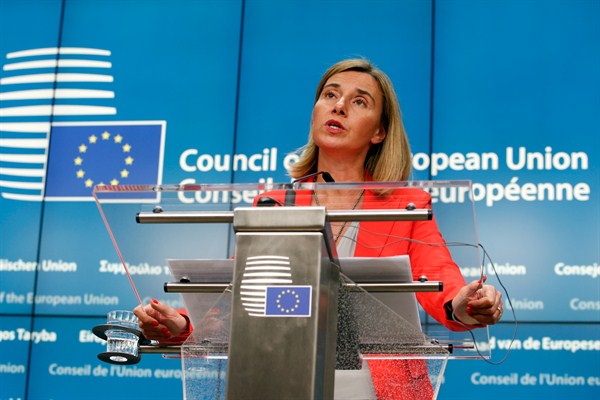In late May, amid the chaotic lead-up to the United Kingdom’s referendum on its membership in the European Union, British newspaper The Times published an article alleging that the EU was scheming to establish an “EU army,” but intended to keep its plans secret from British voters until the day after the June referendum. The story was among the flurry of articles published by British media eager to stoke skepticism toward the EU ahead of the Brexit vote.
The report spread quickly, and other outlets seized the opportunity to embellish. “Britain will be forced to join an EU ARMY unless we leave,” one headline read; those campaigning for a “leave” vote capitalized on the rumors.
Such allegations were in line with the euroskeptic sentiments that led many Britons to vote for the U.K.’s withdrawal from the EU. And while Frederica Mogherini, the bloc’s foreign policy chief, has discussed plans to create new, integrated EU military structures, they’re not quite the EU army that could threaten British sovereignty.

